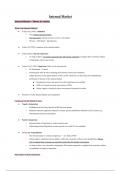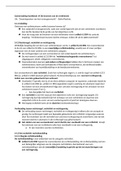Summary
Summary - Law of the European Union (RGBEE50110)
- Course
- Institution
The summary includes detailed notes from lectures weeks 1-7. Additionally, they combine readings notes, include case summaries, explanation of applicability criteria and relevant articles.
[Show more]





